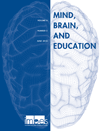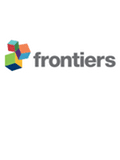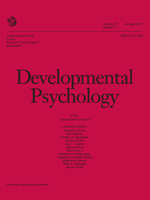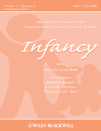
DEVELOPMENTAL SCIENCE
Scope & Guideline
Connecting Minds: Where Development Meets Neuroscience
Introduction
Aims and Scopes
- Cognitive Development:
Investigates how children acquire, process, and utilize information, including studies on language acquisition, mathematical skills, and cognitive flexibility. - Social and Emotional Development:
Explores the interactions between children and their caregivers, peers, and broader social contexts, focusing on attachment, social learning, and emotional regulation. - Neuroscience of Development:
Examines the neural underpinnings of developmental changes, utilizing techniques such as neuroimaging and electrophysiology to understand brain-behavior relationships. - Cross-Cultural Perspectives:
Addresses how cultural factors influence developmental trajectories, emphasizing the importance of diverse contexts in shaping children's experiences. - Intervention and Application:
Focuses on practical applications of developmental research, including interventions aimed at improving outcomes for children at risk due to socioeconomic or familial factors. - Longitudinal and Cross-Sectional Studies:
Utilizes various methodological approaches, including longitudinal studies to track changes over time and cross-sectional designs for comparative insights at different ages.
Trending and Emerging
- Impact of Socioeconomic Factors:
Increased focus on how socioeconomic status, family dynamics, and community resources affect child development, with an emphasis on equity and access to opportunities. - Neurodevelopmental Interventions:
Growing interest in interventions that leverage neurodevelopmental insights to promote better outcomes in children, particularly those at risk for developmental delays. - Multimodal Approaches to Learning:
Research exploring the integration of multiple sensory modalities in learning processes, particularly in the context of language acquisition and mathematical understanding. - Cultural and Contextual Variability:
A trend towards understanding how cultural contexts shape developmental processes, leading to a richer understanding of diversity in child development. - Mental Health and Well-Being:
Emerging topics on the interplay between developmental processes and mental health, focusing on resilience, coping strategies, and the impact of early experiences on later psychological outcomes.
Declining or Waning
- Traditional Behaviorist Approaches:
Research emphasizing strict behaviorist paradigms has decreased as the field trends towards more integrative approaches that consider cognitive, emotional, and social factors. - Narrow Focus on Specific Disorders:
There appears to be a decline in studies exclusively focused on singular developmental disorders, as researchers increasingly adopt a broader perspective that includes typical development alongside atypical cases. - Overemphasis on Genetic Determinism:
Previous studies heavily focused on genetic influences on development have waned, with a growing recognition of the role of environmental, social, and contextual factors. - Static Models of Development:
There is a move away from static models that view development as linear and predetermined, in favor of dynamic and interactive frameworks that account for variability and context.
Similar Journals

Mind Brain and Education
Empowering Educators with Cutting-Edge ScienceMind, Brain, and Education is a pioneering journal published by WILEY, focusing on the intersection of cognitive neuroscience, developmental psychology, and educational practices. With an ISSN of 1751-2271 and E-ISSN 1751-228X, this esteemed publication offers a platform for researchers and educators to disseminate innovative findings that bridge theory and practice in learning environments. Spanning from 2008 to 2024, the journal has established a reputation as a vital resource in the academic community, recognized in 2023 as Q2 in Developmental and Educational Psychology and Education, and Q3 in Cognitive Neuroscience and Experimental and Cognitive Psychology. With Scopus ranks demonstrating its impact, especially in Education and Psychology fields, Mind, Brain, and Education invites submissions that advance knowledge and application of educational strategies informed by brain science. Researchers, professionals, and students will find critical insights and collaborative opportunities to enhance educational outcomes and cognitive development in learners.

BRAIN AND LANGUAGE
Bridging Insights in Psychology, Speech, and LanguageBRAIN AND LANGUAGE is a premier journal published by Academic Press Inc Elsevier Science, dedicated to fostering scholarly communication in the fields of Cognitive Neuroscience, Linguistics, Psychology, and Speech and Hearing. With its ISSN 0093-934X (Print) and 1090-2155 (Online), the journal has established a significant presence since its inception in 1974, continuing to provide valuable insights into the intricate relationship between brain function and language processing. This journal is highly regarded, boasting a 2023 ranking of Q1 in Linguistics and Language, reflecting its influential contributions to the field, alongside Q2 rankings in categories such as Cognitive Neuroscience and Experimental Psychology. With a rigorous peer-review process, it serves as an essential resource for researchers and professionals seeking to deepen their understanding of language mechanisms and their cognitive underpinnings. Despite not being an Open Access journal, BRAIN AND LANGUAGE ensures that its articles are widely accessible and of high quality, making it an indispensable platform for both emerging and established scholars aiming to expand the boundaries of research in language and cognition.

Frontiers in Human Neuroscience
Innovating Research in Human NeuroscienceFrontiers in Human Neuroscience is a premier open access journal published by FRONTIERS MEDIA SA, dedicated to advancing the understanding of the complexities of human neuroscience. With an ISSN of 1662-5161, the journal has established its prominence in various fields, achieving a Q2 ranking in categories such as Behavioral Neuroscience, Neuropsychology and Physiological Psychology, and Psychiatry and Mental Health as of 2023. Since its inception in 2008, Frontiers in Human Neuroscience has consistently contributed to the scholarly dialogue by offering a platform for innovative research that bridges the gap between neuroscience and behavioral science. The journal's rigorous peer-review process and commitment to open access ensures that findings are readily available, promoting collaboration and progress within the academic community. With an impact on neuroscience disciplines, it stands at the forefront of the field, inviting researchers, professionals, and students alike to engage with cutting-edge studies and developments. The journal's address is located in Lausanne, Switzerland, where it continues to flourish as a hub for neurobiological exploration.

BRAIN AND COGNITION
Advancing Insights in Cognitive NeuroscienceBRAIN AND COGNITION, published by Academic Press Inc Elsevier Science, stands as a vital resource for researchers and practitioners in the realms of cognitive neuroscience and psychology. Established in 1982, the journal has continuously evolved, showcasing cutting-edge research that bridges the understanding of brain functions and cognitive processes up to 2024. With an impressive impact factor reflecting its commitment to high-quality scholarship, the journal currently holds a prestigious Q1 ranking in Arts and Humanities (miscellaneous) and notable Q2 rankings in various psychology fields, including Cognitive Neuroscience, Developmental and Educational Psychology, Experimental and Cognitive Psychology, and Neuropsychology. This multidisciplinary journal cultivates a rich academic dialogue, offering valuable insights to professionals, researchers, and students alike. Although it does not offer open access, its robust indexing in Scopus and consistent contribution to important discussions in cognitive research define its critical role in advancing knowledge and innovation in the cognitive sciences.

Revista de Psicologia Clinica con Ninos y Adolescentes
Exploring the frontiers of clinical psychology with youth in focus.Welcome to the Revista de Psicologia Clinica con Ninos y Adolescentes, an esteemed academic journal published by UNIV MIGUEL HERNANDEZ, DEPT PSICOLOGIA, dedicated to advancing knowledge in the fields of clinical psychology, developmental psychology, and pediatric mental health. Since its inception in 2014, this Open Access journal has garnered a reputation for its commitment to disseminating cutting-edge research and practical insights, serving as an invaluable resource for researchers, practitioners, and students alike. With an impressive Q2 categorization across various disciplines in the 2023 rankings—including Clinical Psychology and Pediatrics—the journal holds significant merit in its rankings, demonstrating robust scholarly engagement. Nestled within the vibrant academic landscape of Spain, the journal aims to foster interdisciplinary collaboration and promote awareness of psychological issues affecting children and adolescents. By publishing high-quality empirical studies, theoretical papers, and reviews, the Revista de Psicologia Clinica con Ninos y Adolescentes plays a pivotal role in advancing the scientific dialogue within the field, making it an essential resource for anyone dedicated to improving mental health outcomes for younger populations.

BRITISH JOURNAL OF DEVELOPMENTAL PSYCHOLOGY
Unveiling the intricacies of educational psychology.British Journal of Developmental Psychology, published by Wiley, is a leading journal dedicated to advancing the field of psychology with a particular focus on developmental and educational psychology as well as developmental neuroscience. With an ISSN of 0261-510X and E-ISSN 2044-835X, this journal has become an essential platform for researchers and professionals to disseminate their findings, fostering a deeper understanding of developmental processes across the lifespan. As evidenced by its Q2 rankings in both relevant categories for 2023, the journal is recognized for its high-quality content and impactful research. It serves as a vital resource for those studying the complexities of human development, providing insights that inform both academic inquiry and practical applications. Although it does not currently offer open access, the journal maintains a strong commitment to accessibility through various subscription options. Embracing a broad and contemporary scope, the British Journal of Developmental Psychology continues to contribute significantly to scholarly conversations in the field and is poised to shape future research trajectories through 2024 and beyond.

JOURNAL OF PSYCHOPHYSIOLOGY
Transforming Research into Real-World ApplicationsJOURNAL OF PSYCHOPHYSIOLOGY, published by Hogrefe Publishing Corp, serves as a crucial platform for the dissemination of research in the interdisciplinary fields of neuropsychology, physiological psychology, and neuroscience. With an ISSN of 0269-8803 and an E-ISSN of 2151-2124, this journal has been a staple in the academic community since its inception in 1987 and will continue to publish impactful research until at least 2024. Despite the absence of Open Access, the journal maintains a significant presence, holding Q3 and Q4 quartile rankings in relevant disciplines according to the 2023 metrics. Researchers and practitioners benefit from the journal's robust focus on integrating psychophysiological research with practical applications, contributing to a better understanding of psychological processes through physiological insights. As evident from its Scopus rankings, the JOURNAL OF PSYCHOPHYSIOLOGY is dedicated to fostering scholarly dialogue and advancing knowledge in the field, making it an essential resource for anyone invested in the intricacies of human behavior and the physiological underpinnings thereof.

DEVELOPMENTAL PSYCHOLOGY
Illuminating the Path of Lifespan DevelopmentDEVELOPMENTAL PSYCHOLOGY is a prestigious journal published by the American Psychological Association, dedicated to advancing the field of developmental psychology through rigorous research and insightful analysis. With an impact factor that ranks it in the Q1 category for Demography, Developmental and Educational Psychology, and Life-span and Life-course Studies, this journal stands as a leading resource for scholars and practitioners alike. Since its inception in 1969, it has provided a platform for innovative studies that address crucial questions surrounding human growth and development across the lifespan. The journal is recognized for its high-quality contributions, as reflected in its impressive Scopus rankings, positioning it within the top tiers of its field. Although it is not an open-access publication, it remains an essential reading for those invested in understanding the complexities of development across various stages of life. Published quarterly, DEVELOPMENTAL PSYCHOLOGY plays a critical role in shaping future research agendas and informing practical applications in educational and clinical settings.

Language Cognition and Neuroscience
Innovative Insights into Language Processing and CognitionLanguage Cognition and Neuroscience is a premier peer-reviewed journal published by ROUTLEDGE JOURNALS, TAYLOR & FRANCIS LTD, focusing on the intersection of linguistics, cognitive psychology, and neuroscience. Since its inception in 2013, this journal has established itself as a vital resource for researchers and scholars, contributing significantly to the understanding of how language is processed and represented in the brain. With its impressive rankings in various categories—Q1 in Linguistics and Language, Q2 in Cognitive Neuroscience, and Experimental and Cognitive Psychology—it caters to a diverse and interdisciplinary audience. The journal is accessible to readers worldwide, effectively communicating cutting-edge research and innovative methodologies in the field. Open Access options enable broader disseminations of knowledge, ensuring that significant findings reach both academic and practical applications. With a commitment to high-quality research, Language Cognition and Neuroscience continues to be an influential platform for advancing theories and practices within cognitive science and language studies.

INFANCY
Shaping the future of pediatric research.INFANCY is a leading academic journal published by Wiley, dedicated to advancing the field of child development and psychology. With an ISSN of 1525-0008 and an E-ISSN of 1532-7078, this journal showcases high-quality, peer-reviewed research focusing on the early stages of human development, making it an invaluable resource for researchers, practitioners, and students in the fields of Pediatrics, Perinatology, and Developmental Psychology. As of 2023, INFANCY stands notable with an impressive impact factor, ranking in the second quartile for Developmental and Educational Psychology and the first quartile for Pediatrics, Perinatology, and Child Health. This ranking reflects its commitment to publishing cutting-edge research impactful in shaping health policies and educational practices. With its convergence years extending from 2000 to 2024, INFANCY remains a vital platform for disseminating innovative findings that address pressing issues in early childhood development and care. Researchers looking to contribute valuable insights will find this journal an essential avenue for impactful academic discourse and professional growth.